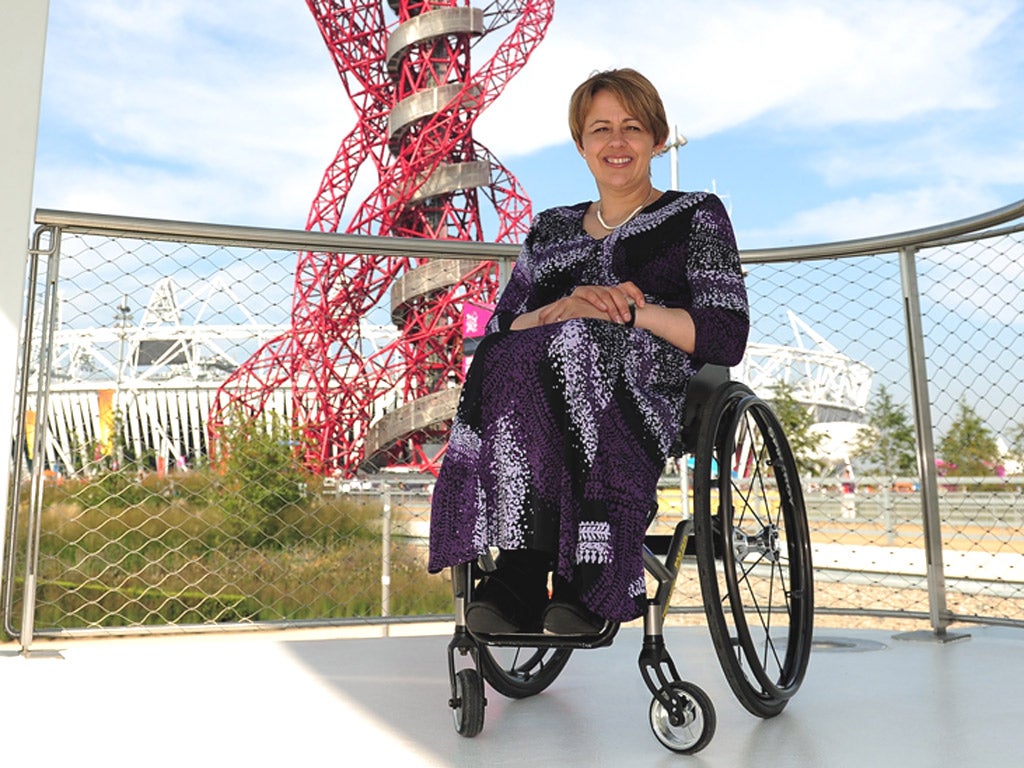Half a million disabled hit by Iain Duncan Smith's welfare reform, says Baroness Tanni Grey-Thompson inquiry
The changes could make it harder for disabled people to remain in work, claims inquiry led by Baroness Tanni Grey-Thompson

Up to half a million disabled people and their families will be worse off if Iain Duncan Smith's flagship proposals for a universal credit for benefit claimants go ahead, according to an inquiry led by Baroness Tanni Grey-Thompson.
Cuts to child disability payments and to support for the most severely disabled are likely to result in people struggling to pay for essentials such as food and heating, says the report which is backed by The Children's Society, Citizens Advice and Disability Rights UK.
Many disabled people who are already finding it difficult to make ends meet face further hardship under the new benefit system, it adds.
The report warns that up to 230,000 severely disabled people who do not have another adult to assist them will get between £28 and £58 less in support every week. It also reveals that 100,000 disabled children stand to lose up to £28 a week, while 116,000 disabled people who work risk losing up to £40 per week from payments towards additional costs of being disabled.
Universal Credit is a new benefits system set to replace a number of key current benefits, including some Income Support; Income based Job Seekers Allowance, Housing Benefit and Tax Credits.
It is due to come into place in October 2013 and aims to simplify the benefits system and to improve the incentives for people to find work.
More than eight out of 10 (83 per cent) of disabled adults living alone or with a young carer said they would cut back on food and 80 per cent said they would cut back on the amount they spend on heating.
Although Universal Credit was intended to create more incentives for people to work, the inquiry concluded that the changes could make it harder for disabled people to remain in work.
Baroness Tanni Grey-Thompson said: "The findings of this report do not make easy reading. The clear message is that many households with disabled people are already struggling to keep their heads above water. Reducing support for families with disabled children, disabled people who are living alone, families with young carers and disabled people in work, risk driving many over the edge in future."
Matthew Reed, chief executive of The Children's Society, said: "While it is true that some people will be better off under Universal Credit, it is shocking that so many disabled people – including children – will have to cut back on food, specialist equipment and, in some cases, be forced to move out of their homes or consider moving their child into full time residential care."
A spokesman for the Department for Work and Pensions accused the inquiry of producing a "highly selective" report which "could result in irresponsible scaremongering". He said: "Our reforms will create a simpler and fairer system with aligned levels of support for adults and children."
Subscribe to Independent Premium to bookmark this article
Want to bookmark your favourite articles and stories to read or reference later? Start your Independent Premium subscription today.

Join our commenting forum
Join thought-provoking conversations, follow other Independent readers and see their replies